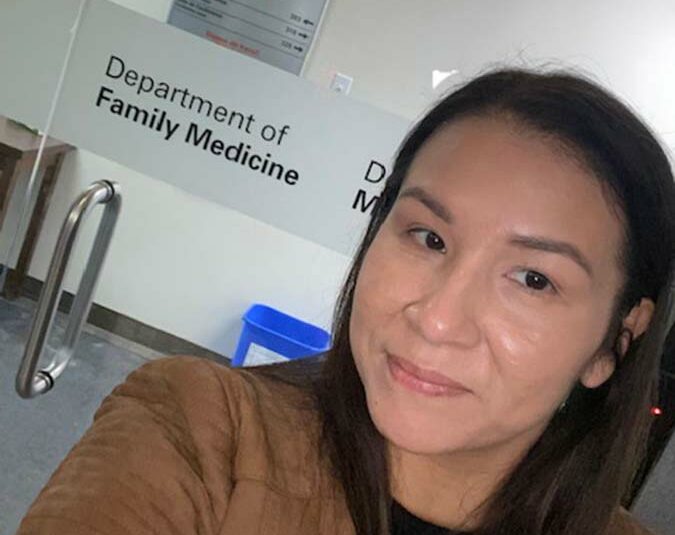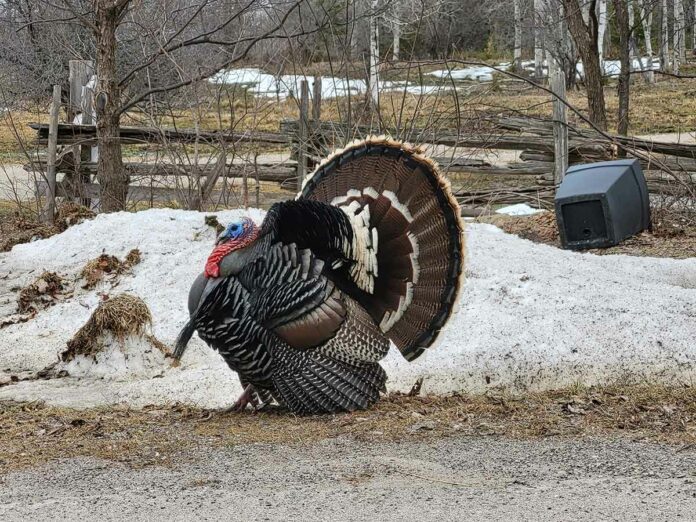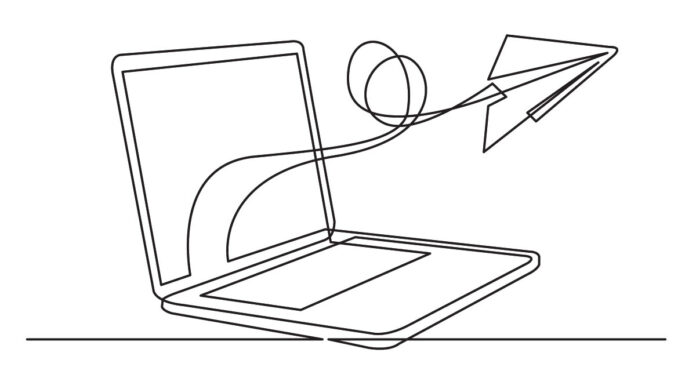by Tom Sasvari
TORONTO—Amy Shawanda, who was born and raised in Wiikwemkoong Unceded Territory was recently appointed assistant professor and Indigenous scholar at the Department of Family Medicine with McGill University.
“I was surprised that I got this position,” Ms. Shawanda told The Expositor. “I had interviewed for two positions at McGill and was fortunate to get both. I had a choice of what I wanted, and I considered what would impact Indigenous communities more so I selected the family medicine position.” She pointed out the assistant professor and Indigenous Scholar teaching and research positions are one and the same.
“McGill was never on my radar,” acknowledged Ms. Shawanda. “I didn’t even know how prestigious a university it is. I had interviews with four universities, but I didn’t think I was in the running for the McGill position. I was told by several people that it is one of the hardest institutions to get into as it has the number one family medicine program in Canada.”
“We are pleased to announce the appointment of Amy Shawanda as a tenure track assistant professor and Indigenous scholar at the Department of Family Medicine. Ms. Shawanda, an Odawa kwe, is an Indigenous health researcher, and a Provost Post-Doctoral Fellow at the Dalla Lana School of Public Health at the University of Toronto,” said Marie Moucarry, in a release. “Ms. Shawanda was born and raised in Wiikwemkoong Unceded Territory on Manitoulin Island, Ontario. She has been immersed in Indigenous education and land-based learning since daycare to secondary school, then repositioned her strengths in Indigenous knowledges in undergraduate and graduate schools.”
“I am originally from Wiikwemkoong, born and raised there and took all my schooling in elementary and high school in Wiky,” said Ms. Shawanda. “I saw my sisters and brothers get their diplomas and find work in their preferred professions off the Island and decided that was the path I wanted to follow.”
Ms. Shawanda has a background in law and justice and Indigenous studies with a master’s in Indigenous relations (both from Laurentian University) where her research focused on smudging policies in Northeastern Ontario healthcare facilities. She obtained her PhD at Trent University and her doctoral work focused on Anishinaabe motherhood and examining the challenges, tensions and strengths of traditional teachings and pedagogies in a contemporary context. “I am proud to say that I finished my PhD degree in four years, and this was with having three kids at the time. Not very many people finish their PhDs in four years, the average is about seven years. This was quite a challenge, but I had support from my family and from two other mothers who were doing the same. We were in different programs and schools but through social media we had a support system,” she said, noting she finished her PhD through the pandemic.
“Then I got my Provost Post-Doctoral Fellow. Angela Mashford-Pringle, an Algonquin kwe from Temiskaming First Nation who holds a PhD at Dalla Lana, was my supervisor and I studied under her,” said Ms. Shawanda.
Ms. Shawanda has specialized knowledge on strengthening Indigenous ways of being, doing, knowing and reclaiming. She has been teaching undergraduates and graduate students about Indigenous health, health care, land-based learning, Indigenous maternal health, Indigenous pedagogies, Indigenous methodologists and spiritual health.
“Anishnaabe motherhood is about encompassing all our teachings and bringing them into a 21st century setting so it becomes applicable to our children today,” said Ms. Shawanda. “My research was really interesting, because a lot of mothers do not think of themselves as traditional, but they do a lot of traditional things. The women I met thought it was all about attending ceremonies, but it’s not. These women did traditional Anishnaabe teachings every day and did not even realize it. My research was very much strength-based, as opposed to the deficit that we see written about our Nations. We already know about what is wrong in our communities, let’s start focusing on the things that we do well. It is not about ignoring those challenges but shifting that narrative.”
In her research Ms. Shawanda said, “intergenerational cycle breakers is the key thing that I took away from my research. Many mothers today are understanding the intergenerational harm from residential school and Indian Day Schools and understand that it can stop with them. Many mothers are actively working on addressing the traumas they are dealing with, but also working every day to incorporate their languages and cultures with their children, so it is being passed on. This is intergenerational healing and I thought that was the most beautiful thing that came out of my research.”
“I tend to look at my approach to health and research through the lens of ‘How does it benefit Indigenous communities?’ Health is such a broad term, it can mean the health of our languages, the health of our culture. It can also mean the mental, physical, emotional and spiritual aspects of our mind, body and spirit. It can also include treaties and the land. Health is a broad term which I love, and, for Indigenous Peoples, we can’t just talk abut one aspect and isolate it because it is all interconnected.”
The main thing she would like her students to learn from her classroom teachings is, “to be anti-racist first and foremost. Secondly, to continue to unlearn any biases that they have about indigenous peoples and to continue their learning journey beyond the classroom. I would also like to help unburden Indigenous doctors and nurses and other medical professionals so that they do not have to take time away from their day to educate non-Indigenous doctors and other licenced professionals within the medical field.”
The western world can learn from Indigenous cultures, said Ms. Shawanda. “I feel like western culture is very extractive. One of the things that we try to practice in my culture is reciprocity and giving thanks. We are very thankful of the things that we do have and therefore we share those gifts with others and give back to our community when we can. Western culture is very singular and Indigenous cultures are very communal. With a communal mindset, we are always thinking of our actions and our children and those past, present and future generations.”
“I want to research Indigenous health so that there is no more harm to our communities,” continued Ms. Shawanda. “You would be very surprised to hear how I, as a visibly Indigenous woman, get treated in healthcare institutions before they find out that I have a PhD and that my work involves examining institutions to see how they are approaching healthcare. I feel that I have a responsibility to represent those voices that are often scared, oppressed, marginalized. If people are treating me like this in these healthcare institutions, I think to myself, ‘who else have you treated like this?’ That is what motivates me.”
“My husband and our three children are very excited to be moving to Montreal,” said Ms. Shawanda, who will be starting at McGill on August 1.
Ms. Shawanda encouraged others to, “Chase a goal. Chase a dream. You never know where it will lead you. Follow your heart even when it can be scary, but always make sure you have a support system to pick you up when you’re down.”





